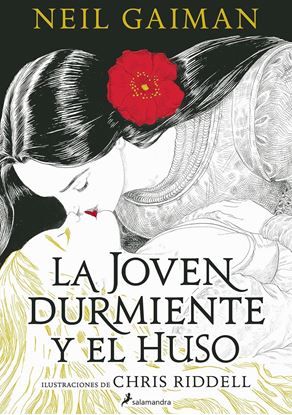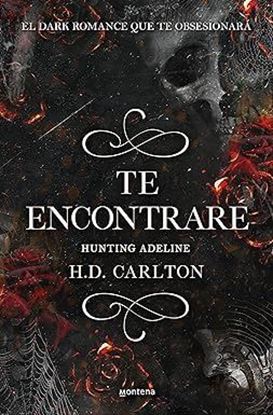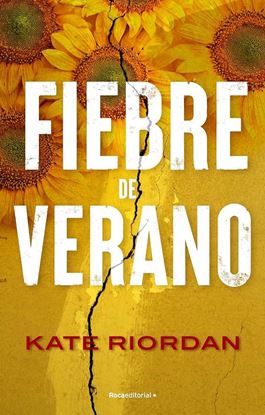

TAMAYURA
Tamayura contiene diez relatos con historias que se entrelazan, a veces porque los protagonistas comparten el mismo nombre, otras por su carácter sutilmente sobrenatural, y casi siempre porque tienen el amor —y el dolor que nace de él— como tema central. Cada uno de ellos fue publicado primero en revistas literarias entre 1951 y 1956, años en los que la pobreza y la desolación de un Japón en ruinas traumatizaron a una generación abatida por la derrota en la Segunda Guerra Mundial.
En estos relatos, como en muchas de las obras posteriores de Yasunari Kawabata, la guerra y la rendición de su país marcan un antes y un después en la vida de los personajes, y son hechos históricos que están omnipresentes como telón de fondo. El propio autor los seleccionó para su publicación en esta antología que ve la luz por primera vez en castellano.
Maestro en el arte de desvelar lo extraordinario en lo ordinario, «leer a Yasunari Kawabata es como experimentar un haiku en forma de prosa: conciso, evocador y profundamente conmovedor» (The Independent). Uno de los grandes autores nipones del siglo xx y el primero en recibir el Premio Nobel, «su literatura actúa como un puente entre los paisajes serenos de Japón y las complejidades universales del corazón humano» (The Washington Post).
1,450
1,160
LA JOVEN DURMIENTE Y EL HUSO
Era una de esas brujas de los bosques, condenada a la marginación mil años atrás, una mala persona. Maldijo a la pequeña el día que nació, para que, cuando la joven cumpliera dieciocho años, al pincharla con un huso en el dedo se durmiera para siempre.
A vuelo de pájaro, era el reino más cercano al de la reina, pero ni siquiera los pájaros volaban sobre él.
Esta historia tal vez os resulte familiar: hay una joven reina a punto de casarse. Hay algunos enanos buenos, fuertes y valientes; hay un castillo rodeado de una maraña de espinos; y hay una princesa a la que, según se rumorea, una bruja condenó al sueño eterno.
Pero aquí nadie espera que aparezca un noble príncipe montado en su fiel corcel y dispuesto a arreglar las cosas. Si una joven reina quiere demostrarse a sí misma que puede ser una heroína, rescatar a una princesa es una ocasión perfecta...
Este cuento de hadas está urdido con un hilo de magia negra que gira sinuosamente, arrojando apasionantes brillos y reflejos que sorprenderán a lectores de todas las edades.
1,450
1,160
NOS VEMOS AYER (MEX)
Barrett Bloom espera que la universidad sea una oportunidad para empezar de cero tras su complicada experiencia en el instituto. Pero cuando el 21 de septiembre empiezan las clases, todo se complica. Un chico la humilla en la clase de física, su entrevista para el periódico de la universidad es un desastre y, por si fuera poco, esa misma noche, durante una fiesta, provoca un incendio de forma accidental. Presa del pánico, huye a su habitación, pero su compañera ha cerrado la puerta, así que se queda dormida en una sala común.A la mañana siguiente, para su asombro, Barrett se despierta en su habitación, sin olor a humo ni sueños rotos. Vuelve a ser 21 de septiembre. De nuevo. Y tras un enfrentamiento con Miles, el chico de la clase de física, descubre que no es la única en esa situación: él lleva meses atrapado.Cuando sus intentos de arreglar su línea temporal fracasan, Barrett acepta colaborar con Miles para intentar encontrar una solución. Pronto se ven explorando los misterios que subyacen en la universidad y viviendo aventuras salvajes y románticas. A medida que empiezan a enamorarse el uno del otro, deben enfrentarse a una pregunta con difícil respuesta: ¿qué pasará con su relación si finalmente consiguen pasar al mañana?
1,450
1,160
HUNTING ADELINE. TE ENCONTRARE (2)
El diamante
La muerte camina junto a mí, pero la Parca no es un rival para mí.
Estoy encerrada en un mundo lleno de monstruos, vestidos con trajes de hombre, y de gente que no es lo que parece.
No podrán retenerme para siempre.
Ya no reconozco a la persona en la que me he convertido y lucho por hallar el camino que me lleve de vuelta junto a la bestia que me da caza por las noches.
Me llaman el diamante, pero lo único que han creado es un ángel de la muerte.
El cazador
Nací siendo un depredador, con la crueldad incrustada en todos y cada uno de mis huesos.
Y cuando, en mitad de la noche, me roban lo que me pertenece, como un diamante escondido dentro de una fortaleza, noto que ya no puedo retener a la bestia que hay en mí.
La tierra se teñirá de sangre mientras destrozo este mundo para encontrarla.
Y la devolveré al lugar al que pertenece.
Nadie se librará de mi ira, especialmente aquellos que me hayan traicionado.
1,450
1,160
FIEBRE DE VERANO
Ambientada en la campiña italiana en el transcurso de un largo y caluroso verano, esta novela sigue a Laura y a Nick, quienes esperan que su nueva vida al frente de una casa de huéspedes en un hermoso entorno ayude a arreglar las grietas en su matrimonio. Pero a medida que aumenta el intenso calor del verano, Laura comienza a pensar que su relación con Nick podría ser irrecuperable. Laura tiene la esperanza de que la llegada de sus primeros invitados, una glamurosa pareja estadounidense, les proporcione una distracción muy necesaria. Sin embargo, no pasa mucho tiempo antes de que surjan tensiones entre las dos parejas a medida que las atracciones prohibidas y los secretos peligrosos salen a la superficie…
Bajo el sol abrasador del mediterráneo, ningún secreto puede permanecer a salvo. Ninguna traición puede pasar desapercibida.
1,450
1,160
LA AVENTURA
Rose McCarthy es la legendaria directora de la revista Mode. Tras la muerte de su esposo, ha estrechado la relación con sus cuatro hijas. Todas tienen carreras de éxito: Athena es una conocida chef televisiva; Venetia es diseñadora de moda; Olivia, jueza de un tribunal superior; y Nadia, la más joven, es diseñadora de interiores en París.
Nadia considera que su vida es perfecta: está casada con el aclamado autor Nicolas Bateau, que la adora a ella y a sus hijas. Pero todo cambia cuando un escándalo explota en la prensa: Nicolas tiene una aventura con una atractiva y joven actriz.
Con el corazón roto y humillada públicamente, Nadia se refugia en su familia mientras intenta recuperar la estabilidad. A medida que madre e hijas pasan más y más tiempo juntas, no tardan en darse cuenta de qué es lo verdaderamente importante en la vida.
1,450
1,160














